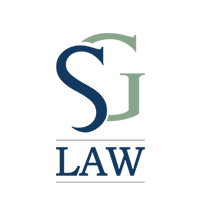Hearsay is one of the most often misunderstood and mistakenly cited rules of evidence and legal concepts generally. Hearsay confuses judges and practicing lawyers, let alone non-lawyers who choose to represent themselves. I cannot tell you how many times I have heard a client, friend, or other non-lawyer in conversation mutters words like, “well that is just hearsay” or “he can’t testify to that because it is hearsay” without any clear understanding of what hearsay actually is.
Hearsay exceptions in sexual abuse cases exist for a number of policy reasons. One of the most important reasons for having exceptions, in this case, is to protect a child that has already been subjected to sexual abuse from further trauma. These policies cannot override rights secured by the United States Constitution, such as the right to face your accuser. Policy considerations certainly come into play in the two exceptions to the hearsay covered in this blog post.
The purpose of this blog entry is not to discuss at length what hearsay is and what hearsay is not. That topic could take volumes and will likely be covered, not exhaustively, in a series of other blog entries. Nor is the purpose of this article to list every hearsay exception available in a child sexual abuse case, let alone every hearsay exception generally. The purpose of this blog entry is to discuss two of the hearsay exceptions permitted in Virginia by statute and how these statutes apply to cases involving the sexual abuse of children. These exceptions apply only in civil cases and not in criminal cases. A very, very brief explanation of what hearsay is will follow, but only to give context to the reader who may not be familiar with hearsay.
I. What is Hearsay?
“’Hearsay’ is a statement, other than one made by the declarant while testifying at the trial or hearing, offered in evidence to prove the truth of the matter asserted.” Va. Sup. Ct. R. 2:801. For a statement to be hearsay, the witness must be testifying about a statement that was made outside of the courtroom. Consequently, if a witness says, “I saw the defendant at Lost Rhino on April 22, 2014”, then there is no hearsay. The witness is testifying about something that is in his or her personal knowledge. The testimony may be subject to other objections, such as an objection based on relevance, but it is not hearsay. On the other hand, if the witness says, “The defendant’s mother told me the defendant was at Lost Rhino on April 22, 2014” then there is a valid hearsay objection to the witness’ statement assuming that the matter trying to be proved is that the defendant was at Lost Rhino on April 22, 2014. The witness is testifying about an out-of-court statement made by the defendant’s mother. If the party trying to establish this fact wants to get it into evidence, then the proper person to call as a witness is the defendant’s mother, who presumably has first-hand knowledge that the defendant was at Lost Rhino on April 22.
There are reasons why the courts do not allow hearsay. The main reason is reliability. In the example above, we do not know how reliable the statement of the defendant’s mother is. We do not know how she knows the defendant was at Lost Rhino. It may be that she saw him there. It may also be that she heard about it from some other person, or even the defendant himself. Without having her present to ask her these questions, the court could never know. Furthermore, the defendant’s mother’s absence deprives the fact finder (either the judge or the jury) of the opportunity to assess her credibility.
There are many exceptions to the hearsay rule. Exceptions include party admissions, present sense impressions, statements against interest, business records, excited utterances, dying declarations, and more. Some exceptions are applicable only when the person who made the original statement is not available to testify at trial and some are applicable regardless of whether the person is available or not.
I will not be delving any further into the definition of hearsay or any of the other exceptions except for the two covered below. What I have covered should be enough of a barebones definition to provide context to the following discussion.
II. Va. Code Ann. § 8.01-401.1 – Expert Opinions
The first exception I will discuss in this blog entry is the exception stated in Virginia Code Ann. § 8.01-401.1. This exception is applicable exclusively to experts that are testifying before the court. Additionally, this exception is only applicable in civil cases, including cases determining or modifying custody of minor children. The exception in this particular code section is not applicable in criminal cases.
The statute forms the basis of two of the Virginia Supreme Court Rules of Evidence: Va. Sup. Ct. Rule 2:703(a) and Va. Sup. Ct. Rule 2:705(a). The statute states that an expert may give testimony and render an opinion or draw inferences from facts that are made known to the expert before trial. Most importantly for this blog entry, the statute states that the facts relied on by the expert “need not be admissible in evidence” if the facts are “of a type normally relied upon by others in the particular field of expertise in forming opinions and drawing inferences.”
The Court of Appeals of Virginia considered this particular hearsay exception in cases specifically involving allegations that a parent sexually abused a child. In M.E.D. v. J.P.M., 3 Va. App. 391 (Va. Ct. App. 1986), a child made statements to two experts that her father had sexually abused her. During the trial in the circuit court, the child’s mother attempted to introduce the child’s statements into evidence through the experts and the trial judge “uniformly sustained hearsay objections . . . .” The Court of Appeals held, however, that § 8.01-401.1 “authorized the experts to express their opinions that the father sexually abused the child.” This was because the record had clearly established that statements of abused children are normally used by practicing psychiatrists and psychologists as a basis for their expert opinion. Unpublished opinions of the Court of Appeals have held similarly. See, e.g., Anderson v. City of Hampton Dept. of Social Services 2007 WL 2174733.
This exception is a powerful tool for a parent of a sexually abused child. Often in cases of sexual abuse, there is a lack of physical, forensic evidence. The lack of physical, forensic evidence can occur for a number of reasons, including that not all sexual abuse results in forensic evidence and that often sexual abuse is not reported by a child in a timely manner. A lack of physical, forensic evidence is not, however, a lack of any evidence and § 8.01-401.1 implicitly recognizes this clear fact.
III. Va. Code § 63.2-1522 – Admission of Evidence of Sexual Acts with Children
Va. Code § 63.2-1522 allows for the admission into evidence of the out-of-court statements made by a child who is under 12 years old at the time he or she makes the statement. This statue again is only available in civil cases and is not available in criminal cases. There are, however, only specific types of civil actions to which this statute applies. The applicable civil cases are clearly stated in Section A of the statue and include custody cases and protective order cases involving family abuse.
§ 63.2-1522 is more expansive than § 8.01-401.1 in that unlike the latter, the statements involving abuse do not need to come into evidence through an expert to be admissible under § 63.2-1522. § 63.2-1522 is more restrictive, however, in that certain circumstances involving the child must be established before the hearsay statements can come in. There are several circumstances stated in the statute, and only one of the circumstances must be established. These circumstances include but are not limited to, prior testimony when the child was subject to cross-examination, the existence of a privilege, and a substantial likelihood, based upon expert testimony, that the child would suffer severe emotional trauma from testifying.
There are additional hurdles under § 63.2-1522 that a party must clear for the statements to be admissible. For example, the statements must be disclosed to the adverse party in advance of the trial and the proponent of the statement must let the adverse party know of the intention to offer the statement into evidence.
Conclusion
Often in child abuse cases there is a lack of physical, forensic evidence because such evidence does not exist. In the absence of physical, forensic evidence, the statements and behavior of the child become important factors in determining whether abuse occurred and what steps should be taken to rectify the abuse and protect the child from further abuse. There are a myriad of potential issues with having a child testify about the abuse, not least of which is the potential trauma that the child, who was already the subject of sexual abuse, could suffer from being forced to testify about the abuse before a court. The Virginia General Assembly and Courts of the Commonwealth of Virginia have addressed these concerns in statutes and cases and carved out exceptions to the hearsay rule applicable to children that have been subjected to sexual abuse.

